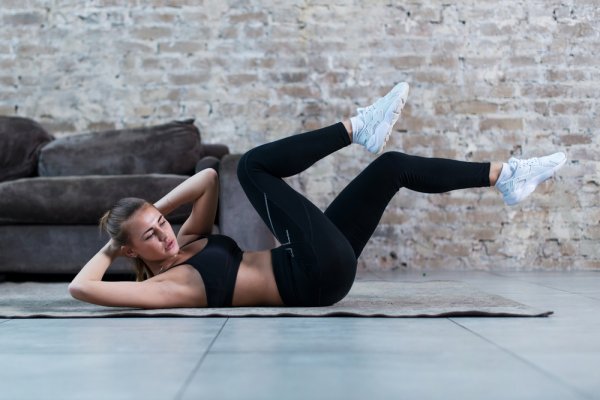Anxiety is your body’s natural response to stress. Researchers believe a variety of factors, including heredity, the environment, and even brain chemistry, can contribute to the experience of fear or concern.
Anxiety may be significantly reduced by making adjustments to one’s lifestyle, like getting more sleep, reducing caffeine intake, meditating, and eating a balanced diet.
Anxiety is a normal part of life. It’s a side effect of living in a busy world. But not all anxiety is negative. It alerts you to potential threats, inspires you to maintain your preparation and organization, and supports risk assessment. It’s important to take action before anxiety worsens, though, when it starts to occur on a daily basis.
The following are a few typical signs of anxiety:
- Elevated heart rate
- Breathing rapidly
- Restlessness
- Concentration problems
However, it’s significant to remember that worry might manifest itself differently for many individuals. One person might have a butterflies in the stomach, while another person might have panic attacks, nightmares, or terrible thoughts.
In light of this, there are distinct differences between normal anxiety and anxiety disorders. It’s one thing to feel concerned about something unfamiliar or stressful, but when that anxiety becomes unmanageable or overwhelming and begins to impair your quality of life, it could be a disorder.
Some anxiety disorders include:
- Panic disorder
- Post-traumatic stress disorder (PTSD)
- Generalized anxiety disorder (GAD)
- Social anxiety disorder
- Obsessive-compulsive disorder (OCD)
- Phobia
- Separation anxiety
- Illness anxiety
Your quality of life could be dramatically impacted by uncontrolled anxiety. Use the strategies listed below to regain control.
1. Exercise
Exercise can help lessen the feelings of anxiety, according to studies. An evidence also points to the possibility that high intensity exercise programs may be more efficient than low intensity ones.
Exercise may also lessen anxiety brought on by demanding situations. Results from a 2016 study, for instance, indicate that exercise may help those who are experiencing anxiety associated to quitting smoking.
Related: Exercise; Basics and How to get Started.

2. Avoid Drinking Alcohol
Since alcohol is a natural sedative, it may initially help to ease the discomfort. However, research indicates a connection between anxiety and alcohol use, with alcohol use disorders (AUD) and anxiety disorders frequently co-occurring.
Reducing alcohol use can help with anxiety and sadness, according to a 2017 study that examined 63 studies. Drinking too much can upset the neurotransmitter balance that is necessary for good mental health. This interference causes an imbalance that could result in specific anxiety symptoms.
Early sobriety may momentarily raise anxiety, but over time, it can decrease. Additionally, it’s been demonstrated that alcohol interferes with sleep homeostasis, which prevents your body from falling asleep on its own. And a good night’s sleep is incredibly helpful when combating anxiety.
Related: Alcoholism: The Beautiful Monster
3. Meditation
In order to better manage stress and anxiety, meditation can assist to slow down racing thoughts. Numerous types of meditation, such as mindfulness and meditation while doing yoga, may be beneficial.
There are 9 popular types of meditation:
- Mindfulness meditation
- Movement meditation
- Spiritual meditation
- Focused meditation
- Loving-kindness meditation
- Progressive relaxation
- Transcendental meditation
- Visualization meditation
- Mantra meditation
4. Think about Quitting Smoking
Smokers frequently light up a cigarette when under pressure. However, smoking while you’re anxious is a temporary fix that could make anxiety worse over time, similar to consuming alcohol.
According to research, the earlier in life you start smoking, the greater your future chance of getting an anxiety illness. Additionally, studies suggest that the compounds in cigarette smoke, such as nicotine, change the brain’s anxiety-related neural networks.
There are several methods to start quitting, if that’s what you want to do. Finding a risk-free alternative to cigarettes, such as toothpicks, is advised by the Centers for Disease Control and Prevention (CDC).
In order to establish an environment that works for your smoke-free existence, you can also adopt behaviors that may divert you. A support system that can offer everything from motivation to diversion can also help you create a plan.

5. Relaxation Activities
In response to anxiety, some people unintentionally stiffen their muscles. Progressive relaxation exercises might assist in releasing this tension and lowering stress.
Related: Benefits of Relaxation
6. Reduce your Caffeine Intake
Caffeine is not your friend if you suffer from persistent anxiety. If you’re uneasy, caffeine may make you jittery and agitated, neither of which are helpful.
Caffeine may contribute to or exacerbate anxiety disorders, according to research. In those who suffer from panic disorder, it could potentially trigger panic attacks. Caffeine withdrawal can considerably reduce anxiety symptoms in some persons.
Due to its capacity to change brain chemistry, coffee and anxiety are frequently associated, much like alcohol and alcoholism. For instance, a 2008 study revealed that caffeine boosts alertness by inhibiting the brain chemical adenosine, which causes fatigue, and simultaneously inducing the production of adrenalin.

All things considered, most people can safely consume a modest amount of caffeine. However, if you wish to reduce or stop consuming caffeine altogether, you should start by gradually cutting back on your regular intake. Start substituting water for these drinks to quench your thirst. This will not only fulfill your body’s demand for liquid, but it will also help you stay hydrated and flush caffeine from your system.
Caffeine use can be reduced gradually over a few weeks to assist break the habit without causing withdrawal symptoms in the body.
Related: Ever wondered why people drink coffee despite its bitter flavor? Find out here.
7. Journaling
Finding a technique to communicate your worry can help you feel more in control of it.
Journaling and other forms of writing, according to some studies, may improve people’s ability to manage their anxiety. For instance, a 2018 study discovered that keeping an emotional journal may lessen mental anguish and enhance general wellbeing.

8. Ensure to get a Decent Night Sleep
Numerous studies have shown that getting enough sleep is crucial for maintaining excellent mental health. The CDC advises adults to get 7 to 9 hours of sleep every day, despite the fact that a 2012 poll indicated that nearly a third of adults sleep for less than 6 hours per night.
You can prioritize your sleep by:
- Avoiding caffeine, heavy meals, and nicotine before bedtime.
- Keeping your room dark and cool and only sleeping at night when you’re exhausted.
- Avoid reading, watching television, using a phone, tablet, or computer in bed, tossing and turning in bed.
- Going to sleep at the same time each night.
Related: What is the Optimal amount of Sleep for us?
9. Time Management Strategies
If they have too many responsibilities at once, some people get uneasy. These could include activities connected to your family, job, or health. Making a plan for the subsequent necessary action might lessen your tension.
People can lower their anxiety by using effective time management techniques. Major jobs can often be completed by certain persons with less stress by being divided into smaller, more manageable segments.
10. Maintain a Healthy Diet
Some people may experience mood changes as a result of low blood sugar, dehydration, or chemicals included in processed foods such artificial flavorings, artificial colorings, and preservatives. A high-sugar diet may affect mood as well. Check your eating habits if your anxiety gets worse after eating. Drink plenty of water, steer clear of processed foods, and consume a balanced diet high in lean proteins, fruits, and vegetables.
11. Practice Deep Breathing
Breathing quickly and shallowly is typical of nervousness. It might cause a rapid heartbeat, lightheadedness or dizziness, or even a panic attack. Deep breathing techniques, which involve intentionally taking slow, even breaths, can assist to reestablish healthy breathing patterns and lessen anxiety.
12. Aromatherapy
Stress and anxiety can be lessened by inhaling calming plant essential oils. Consider experimenting with different possibilities because some scents suit different people more effectively than others. Lavender may be especially beneficial in treating anxiety problems, according to a little research.
Some essential oils believed to relieve anxiety are:
- Grapefruit
- Bergamot
- Ylang ylang
- Lavender
- Clary sage
13. Cannabidiol Oil
Cannabidiol (CBD) oil is a derivative of the cannabis plant. Tetrahydrocannabinol, or THC, is the component of cannabis that causes a “high,” but CBD oil is different from other cannabis products in that it is not present. Although there is inadequate data to support or refute the medical value of CBD oil, it may help relieve anxiety.
In many alternative medicine stores, CBD oil is easily accessible without a prescription. Doctors might also be allowed to prescribe the oil in regions where medical cannabis is accepted.
14. Herbal Teas
Many herbal teas make the claim that they can reduce anxiety and promote sleep. Making and consuming tea can be relaxing for some people, but certain teas may have a more profound impact on the brain, reducing anxiety.
15. Herbal Supplements
Many herbal supplements make the same anxiety-reduction claims as herbal teas do. These assertions are, however, not well supported by science. Working with a doctor familiar with herbal supplements and their potential medicine interactions is essential.
Conclusion
If you’re feeling anxious, the above ideas may help calm you down.
Never forget that while home treatments may reduce anxiety, they shouldn’t be used in place of professional assistance. A prescription drug or counseling may be needed if your anxiety has increased. Your doctor should be informed of your concerns.
